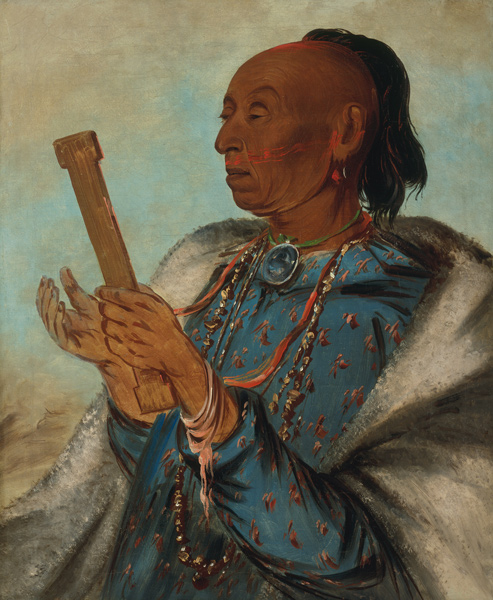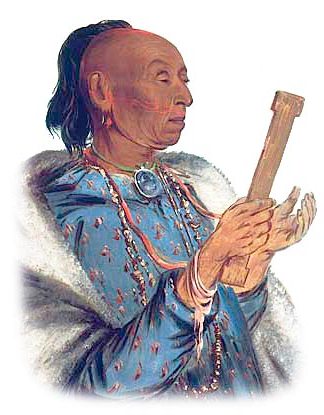
Echoes of the Ancestors: Unearthing the Enduring Beliefs of the Kickapoo Nation
In the heart of North America, where the wind whispers tales through prairie grasses and ancient forests stand sentinel, live the Kickapoo people. Their history is one of resilience, migration, and an unwavering connection to their ancestral lands and the spiritual tenets that have guided them for centuries. Far from being relics of a bygone era, Kickapoo traditional beliefs are a vibrant, living tapestry, woven into the fabric of daily life, community, and identity. This deep spiritual heritage, often misunderstood or overlooked by the outside world, offers profound insights into a worldview where humanity is inextricably linked to the cosmos, the land, and all living things.
The Kickapoo, an Algonquian-speaking people, originally inhabited the Great Lakes region, but centuries of displacement, treaties, and forced migrations have seen them establish communities across various states, including Kansas, Oklahoma, and Texas, as well as a significant presence in Mexico. Despite these vast geographical separations and the immense pressures of assimilation, the core of their spiritual framework has endured, passed down through oral traditions, ceremonies, and the quiet wisdom of elders.

At the core of Kickapoo traditional beliefs is a profound understanding of the cosmos, governed by a benevolent Great Spirit, often referred to as Manitou or Kitchi Manito. This supreme being is the ultimate creator, the source of all life and power, who set the universe in motion and continues to oversee its balance. Unlike some Western monotheistic concepts, Manitou is not a distant, judging deity, but an all-pervasive force present in every aspect of existence – in the rustling leaves, the flowing rivers, the animals, and indeed, within every human being.
"Every blade of grass, every stone, every breath we take is imbued with the Great Spirit’s presence," explains a Kickapoo elder, whose wisdom is etched in the lines of their face. "We are not separate from the world; we are a part of it, and we must honor the spirit in all things." This fundamental principle of interconnectedness shapes every facet of Kickapoo life, fostering a deep respect for nature and a sense of responsibility towards the environment.
Central to the Kickapoo cosmology are sacred narratives, passed down through generations, that explain the origins of the world, humanity, and their unique place within creation. Foremost among these narratives are the stories of Wisaka (or Wesaka), the culture hero and trickster figure. Wisaka is a complex character, simultaneously a creator, a teacher, a mischievous disruptor, and a source of both wisdom and folly. He shaped the earth, taught humans essential skills like hunting and medicine, and often learned lessons himself through his various adventures and misadventures.
Through Wisaka’s adventures, the Kickapoo learn about the balance of good and evil, the consequences of actions, and the enduring resilience of the human spirit. "Wisaka’s stories are not just fables for children," a tribal historian might clarify. "They are profound teachings about our history, our values, and the very nature of existence. They remind us that even the most powerful beings have flaws, and that wisdom often comes from unexpected places." These oral traditions serve as living textbooks, guiding moral conduct, explaining natural phenomena, and reinforcing community bonds.
The spiritual life of the Kickapoo is not confined to abstract concepts; it is vibrantly expressed through a rich array of ceremonies, rituals, and daily practices. These traditions are designed to maintain harmony with the spiritual world, express gratitude, seek guidance, and ensure the well-being of the individual and the community.
One of the most profound and widely practiced ceremonies is the Sweat Lodge (Inipi). This sacred structure, typically a dome-shaped lodge covered with blankets or hides, represents the womb of Mother Earth. Participants enter the darkened lodge, and superheated stones are brought in, over which water is poured to create intense steam. The Inipi is a place of purification, prayer, introspection, and healing. It is here that individuals connect deeply with the Creator, release spiritual and physical impurities, and seek clarity. The heat, the steam, the darkness, and the communal prayers create an intensely transformative experience, stripping away distractions and focusing the mind on spiritual renewal.
Another significant aspect of Kickapoo spirituality revolves around sacred bundles. These bundles, carefully wrapped and often passed down through families, contain various sacred objects – pipes, feathers, herbs, stones, and other items – each imbued with spiritual power and historical significance. They are not merely collections of objects but living entities, repositories of family history, spiritual power, and the collective memory of the people. They are opened and utilized during specific ceremonies, often accompanied by sacred songs and prayers, to invoke blessings, offer healing, or commemorate important events. The care and respect given to these bundles reflect the deep reverence for their ancestral power and the spiritual continuity they represent.
Dances and songs are also vital expressions of Kickapoo spiritual life. These are not merely entertainment but powerful forms of prayer, communication with the spirit world, and communal celebration. The rhythmic drumming, the intricate footwork, and the heartfelt singing create a powerful connection to the ancestors, the land, and the Great Spirit. Ceremonies often revolve around the cycles of nature, such as planting and harvest, hunting seasons, and the changing moon, reinforcing the intimate relationship between the Kickapoo and their environment.

The relationship with nature is, in fact, one of the most distinguishing features of Kickapoo belief. The earth, plants, animals, and even geological formations are seen as relatives, teachers, and sources of spiritual power. Hunting, for instance, is not simply a means of sustenance but a sacred act, undertaken with deep respect and gratitude for the animal’s sacrifice. Before a hunt, prayers might be offered, and after a successful kill, rituals are performed to honor the animal’s spirit and ensure its return to the spirit world. Similarly, plants are not just resources but beings with spirits and healing properties, used not only for medicine but also in ceremonies and daily blessings.
"We do not inherit the earth from our ancestors; we borrow it from our children," a common Indigenous saying that resonates deeply within Kickapoo philosophy. This encapsulates their stewardship ethic, a profound responsibility to care for the land not just for their own generation but for all future generations. This belief system inherently promotes sustainability, balance, and a harmonious coexistence with the natural world.
Despite centuries of relentless pressure – from forced removals and land dispossession to government policies aimed at assimilation through boarding schools and the suppression of native languages and ceremonies – the Kickapoo have fiercely guarded their spiritual heritage. The challenges have been immense, leading to a decline in the number of fluent language speakers and a fragmentation of traditional knowledge.
Yet, the spirit of the Kickapoo endures, demonstrating remarkable resilience. Today, there is a strong movement among Kickapoo communities to revitalize and preserve their traditional beliefs and practices. Language immersion programs are teaching the next generation the nuances of their ancestral tongue, the very vessel of their spiritual concepts. Cultural centers are documenting and sharing oral histories. Elders are actively engaged in teaching younger generations the ceremonies, songs, and stories that define their identity.
"The struggle to preserve the language, the very vessel of these beliefs, is ongoing," notes a Kickapoo language instructor. "But every word spoken, every story told, every song sung in our language is a victory. It’s how we keep the spirits of our ancestors alive and strong for our children."
In essence, Kickapoo traditional beliefs are not relics of a bygone era but a dynamic, living tradition that continues to adapt and thrive. They offer a profound blueprint for living in harmony with the natural world, fostering strong community bonds, and navigating the complexities of existence with spiritual grace. From the whispers of Manitou in the wind to the ancient wisdom held within sacred bundles, the Kickapoo continue to walk a path illuminated by the echoes of their ancestors, a testament to the enduring power of faith, resilience, and an unbreakable connection to their spiritual roots. Their story is a powerful reminder that true strength often lies not in conquest, but in the steadfast preservation of one’s deepest spiritual truths.


